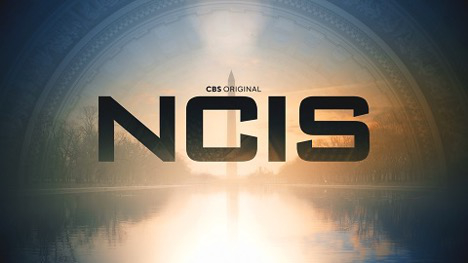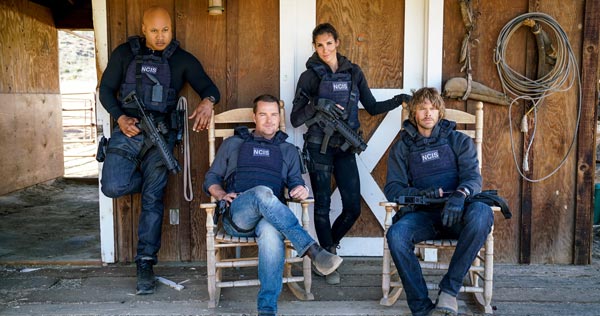PREMIUM: Showrunner Gary Glasberg talks about creating new characters for season 14 of NCIS, while also looking after the successful spin-off, NCIS: New Orleans.
TV DRAMA: More than once, NCIS has had to deal with major characters leaving the show. What is the mind-set in the writers’ room as you decide what kind of character you want to create?
GLASBERG: I truly believe that when you have a major character leave a series, as we’ve had with Michael, that it’s not about replacing that character, nor is it about replicating that character, it’s about moving forward with the series. The goal was to come up with new characters, something very different, something fresh that brings energy to our team, that gives us the enthusiasm to move forward and continue making this show that we’re excited about and proud of.
TV DRAMA: Given the fact that NCIS has been renewed for two more years, is this a good time to have some fresh people come in?
GLASBERG: It’s a real gift to have a two-season pickup, because you never know if you’re going to have time to develop those characters and flesh them out and figure out who they are. So much of the success of NCIS is about the characters. As you know, it’s this family that 20 million people tune in to in the U.S. every week to spend time with. Yes, we come up with cases and procedural story lines, but at the end of the day, it’s about these people, and here we have an opportunity to add to that family, and we want those personalities to stand out and fit together like a puzzle.
TV DRAMA: How do you balance the ongoing stories of the characters with the procedural structure that has made NCIS so valuable to CBS and such a popular show?
GLASBERG: The show has evolved over the years. If you go back and watch the balance of procedural to characters in season one or season two, there was a very different structure than the way we approach the storytelling now. There’s still a case to be solved, there are still procedural elements and the roller-coaster ride of the tension, but the amount of time spent on the procedural cases in many ways has changed, because we want to take the time to spend with our team. Whether it’s a Gibbs personal story, or Fornell or McGee or Abby or Ducky, we want to spend time with them and let our audience continue to get to know them. So very often we’ll do a story that is quite procedurally streamlined and simple in order to have a significant character story, and in another episode, we’ll mix it up and we’ll do a significant crime. We try and balance it and vary it week to week as much as we can.
TV DRAMA: When you joined the series it was already a very valuable franchise. What strengths did you see and how have you built upon them?
GLASBERG: The thing that always struck me about NCIS is the extraordinary balance of humor and pathos and heart and quirkiness and fun, along with solving a crime. In the world of procedural television, very often that’s not the case. [Other procedural shows] are just focused on the police story of it and don’t have the time to have some fun and get to know who the characters are. From day one I recognized—and I credit [NCIS co-creator] Don Bellisario because he always understood this—that even though the early seasons revealed less about the characters, the show has given all of us the opportunity to continue to peel back the layers and understand who we’re dealing with here, and get to know them. Since the day I arrived, the thing that I brought to all the writers was, let’s go home with Vance, let’s meet his children, let’s spend more time with Gibbs in the basement, tell me about Ducky’s past. Those are the things that entertain me, and I’m thrilled that viewers have responded in a similar way.
TV DRAMA: Both the characters and the actors are a very close-knit group. Does that kind of harmony also contribute to the longevity of the show?
GLASBERG: It’s funny, I laugh at the word “harmony,” because when you break it down, you’ve got Mark Harmon’s name in there! Paying a real compliment to Mark Harmon, that kind of chemistry exists as strongly off-screen as it does on. And a lot of that trickles down from the approach that Mark takes to his participation in the show and the vibe and the sensibility that he brings to work every day. This is a team of people—and you can look at the fact that I recently re-signed this entire cast, in season 13, to come back for two more years—who genuinely enjoy each other. They love coming to work and appreciate the gift that they’ve been given with the success of the show. When we filmed Pauley Perrette’s first scene of season 14, she was skipping around like a schoolgirl, literally saying to me, “I’m so excited to be back! I’m thrilled!” To be there 14 years into a show is crazy, but it’s lightning in a bottle, and when you have a group of people that are still enjoying themselves like that—that’s pretty unique.
TV DRAMA: How did NCIS: New Orleans come about?
GLASBERG: Several years ago, I approached Mark [Harmon] with the idea of doing, at the time, just a sweeps episode that took place in New Orleans. I had heard that there was this tiny little office in New Orleans that dealt with local Navy and Marine Corps–related crimes. Mark, to his credit, said, “Gary, that’s not a sweeps episode, that’s a series.” The next thing I knew, I was sitting in a network office, pitching to the people at CBS, and they agreed. We wrote a pilot as a spin-off episode, and we were fortunate enough to put this cast together, and now we’ve entered season three. It’s been a wonderful, fascinating, crazy ride, and the show is doing great.
TV DRAMA: A broadcast network’s season runs 22 to 24 episodes. You have that times two! How do you work with the two writers’ rooms?
GLASBERG: Well, I learned very quickly that it’s not humanly possible to do it all yourself, so I have a very talented assortment of producers and writers, on both shows, that help me keep things in balance. Brad Kern, one of my executive producers on New Orleans, alongside Chris Silber, is running the day-to-day things there. Then I chime in as appropriate, and certainly have been along for the ride for the whole way, but I couldn’t do it without them.
TV DRAMA: On both NCIS and NCIS: New Orleans, the agents often collaborate with the FBI and Homeland Security. What consultants do you have from the various government agencies that help you keep the procedural parts of the stories realistic?
GLASBERG: Part of what makes us a little different from a lot of other shows is that from the beginning, we’ve been very involved in working directly with the Pentagon, the Navy and the Marine Corps, and their liaisons, and with the real NCIS. Whether I’m in communication with the real director of NCIS, Andrew Traver, or talking to the Secretary of the Navy, Ray Mabus, we get on the phone and discuss what’s important to them, what they are looking for, how we can benefit from their participation. They chime in on stories. In addition to that, I have specific consultants. A former agent named Leon Carroll, Jr. has been with the mother ship since day one—he’s on set every day. Leon is an invaluable part of our team, and is there to guide us in terms of how real agents would handle a situation, and we try to keep things as grounded and accurate as possible.
TV DRAMA: Have you fashioned any characters after real-life agents?
GLASBERG: I can’t be specific and tell you this came from one agent or another. But there are absolutely things that come up, [maybe from] a trip to Quantico, NCIS headquarters, where I saw something or I talked to somebody. There are so many little bits and pieces that end up in scripts. That’s the fun part for us; that’s the excitement. With the addition of Wilmer Valderrama, who plays an undercover agent, we’re in the process of talking to a retired deep-cover agent who had 30 years of experience under his belt. To hear those anecdotes and then try to figure out how that fits in with our show, that’s what we love as writers.
TV DRAMA: In addition to Wilmer Valderrama, are there other characters joining the series?
GLASBERG: We have three new characters. At the end of last season, we introduced a British actor named Duane Henry. Duane is going to be participating with us in sort of a part-time way but as a regular character on the show. He’ll play an MI6 agent named Clayton Reeves and he’ll be appearing in a few episodes in season 14. We have Wilmer Valderrama joining us as NCIS undercover agent Nicholas Torres. [He plays] a very rich character with all sorts of complexities and sides to him. With his background from That ’70s Show and the fact that he can play the humor, the strength and the pathos, I think he’s going to be a terrific addition to our group. And then we have Jennifer Esposito, who is a CBS fixture, coming off of Blue Bloods and all kinds of other wonderful projects that she’s been a part of. She’s joining us as an NCIS agent as well, named Alex Quinn, a former instructor who has been teaching agents and returns to the field. She has a longstanding relationship with Gibbs. So we’ve got all of these wonderful new personalities that we’re adding to the great foundation of people that we already have, and it just feels fresh and fun and different. I know it’s a lot of people, but we’re all excited about taking everything and turning it on its head a little bit, and coming at it from a different direction.
 TVDRAMA
TVDRAMA





